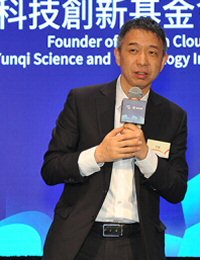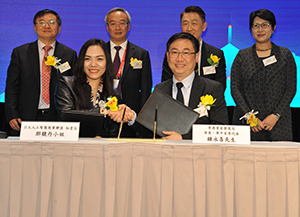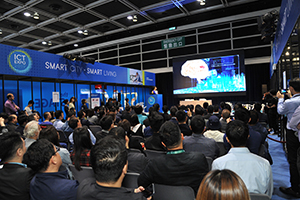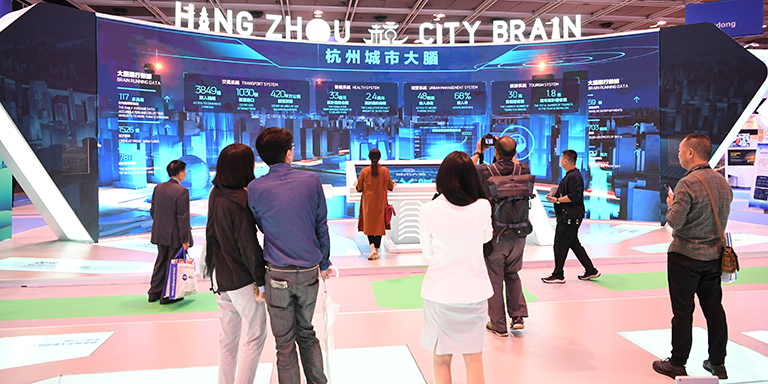
"Heaven is above, below are Hangzhou and Suzhou” goes the old saying, acknowledging the two Yangtze Delta cities' beauty. Hangzhou is now known for more than just beauty, however. It is becoming famed for brains, or to be specific one brain – the vast computer network controlling the city's traffic, health services and many other facilities.Hangzhou is committed to building China's digital-first city. At the Hong Kong Trade Development Council’s HKTDC International ITC Expo (13-16 April), the Hangzhou Municipal Government took the opportunity to internationally showcase its "City Brain" platform, led by Wang Jian, the founder of Alibaba Cloud. Mr Wang and other project leaders detailed the project to a packed audience at the Expo's theme promotion conference.Chen Xinhua, a member of the Standing Committee of Hangzhou Municipal Committee, said the City Brain applies data to urban management and solves the pain points of people's livelihood, making Hangzhou a more liveable and travel-friendly city.Mr Wang, who is also the founder of the Yunqi Technology Innovation Foundation, introduced the architecture of this “urban brain”. He described the system as pushing the city into the third massive innovation. Many cities face traffic congestion problems, Mr Wang pointed out. But Hangzhou aggregates road vehicle data to calculate the best driving plan and improve the smoothness of the road. Big data analysis lets the city better plan resource allocation to achieve sustainable development.
Innovation brings economic returns
Yuan Shiyong - General Manager for overseas government solutions at Zhejiang Dahua Technology Co, Ltd - stressed that a smart city uses technologies to optimise resources. Sensors such as cameras and radar collect and analyse data to improve urban efficiency. Smart technology can be applied to retail, industrial production, and even at home.Five representatives of the “City Brain” project launched a round-table dialogue on the topic “Based on the future of science and technology in the urban brain”. Fang Yanbin, a partner of Ginkgo Valley Capital Partners and the head of the Hangzhou City Brain Yunqi Engineering Institute, said they will integrate all the data resources of the Hangzhou government without any increase in hardware investment, establish a central-data super system, and open up various departments. This transforms the traditional management model.
Smart cooperation

True to the Expo's theme, "Smart City, Smart Life", the HKTDC and the Asia-Pacific Artificial Intelligence Business Alliance (AIBA) signed a memorandum of cooperation to promote smart cities, artificial intelligence, the Internet and associated technologies during the Hangzhou conference.Fu Weiquan, Director of the Hangzhou Tourism Economics Laboratory, said the “urban brain” has brought positive returns to the tourist industry. He said that in the past, Hangzhou used questionnaires to tally visitor numbers but the "urban brain" can reflect passenger volume, visit duration and visitors' consumption, as well as tracking the number of people in each scenic spot, so authorities can provide better travel packages.
Human-machine synergy

HKTDC International ITC Expo

